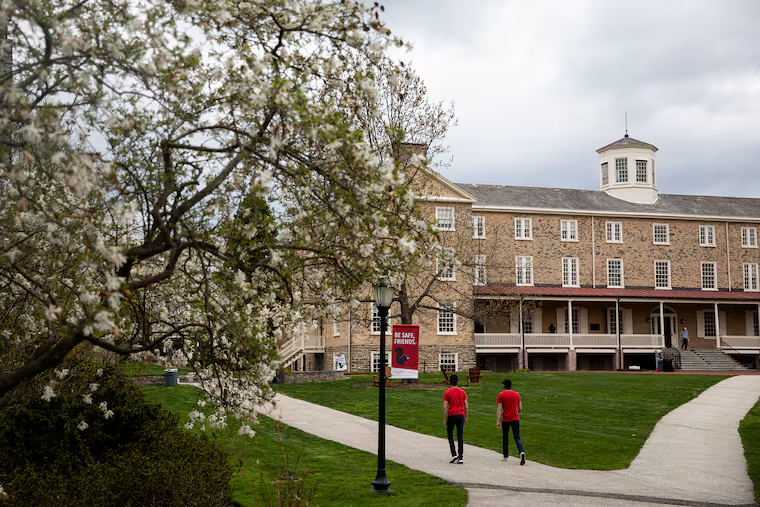Federal judge dismisses lawsuit alleging antisemitism at Haverford College
The plaintiffs said they plan to file an amended complaint

A lawsuit filed by students alleging antisemitism at Haverford College was dismissed without prejudice by a federal court judge this week. This allows the plaintiffs to file an amended complaint, which they say they will.
Calling the complaint “sprawling and disorganized,” Judge Gerald Austin McHugh of the U.S. District Court for the Eastern District of Pennsylvania said he could not even review the relevant facts of the case.
The complaint, he wrote, “appears to detail every frustration and disagreement of Jewish students and faculty that has occurred at Haverford over the last year” and “reads more as an opinion editorial than it does a legal complaint.”
“It spills pages of ink on lengthy frolics about events on other college campuses and about ideological debates,” McHugh wrote, “{r}ather than isolating instances of harassment and logically relating them to the elements of a hostile environment claim.”
» READ MORE: Jewish Haverford students file lawsuit against Haverford College alleging antisemitism
The complaint was filed in May by the Deborah Project, a public interest think tank that defends the rights of Jewish people facing discrimination in the education system. It was filed on behalf of a group of Jewish students calling themselves Jews at Haverford. Only one is named, Ally Landau, a women’s basketball player who has since graduated.
The lawsuit came as tensions mounted on many college campuses, including Haverford, in the wake of the Israel-Gaza war.
In their complaint, the plaintiffs alleged that the college discriminated against Jews by tolerating antisemitic speech and failing to adequately support Jewish students, some of whom have been shunned on campus and prohibited from participating in group discussions where the war was discussed. The college, the group said, failed to condemn Hamas’ attacks on Israel even though it had issued past statements in support of other minority groups, including Black people following the murder of George Floyd by police.
Among other allegations, the group said that a professor called students who supported Israel “racist genocidaires,” which the college did not challenge, and that the school allowed students to host an event where it was asserted that Israel had intentionally infected Palestinians with the coronavirus.
Haverford College does not comment on pending litigation, a spokesperson said.
Lori Lowenthal Marcus, the Deborah Project’s legal director, said the plaintiffs would file an amended complaint within 30 days. The judge, she said, “essentially gave us a road map” on what he wanted to see in the complaint.
“We obviously have everything that he wants to see,” she said. “We will write a streamlined complaint.”
McHugh, the judge, concluded: “The court does not doubt that reactions to events in Israel and Palestine have created many uncomfortable moments for Jewish students at Haverford, as on other campuses. But that does not by itself create a violation of federal law.”